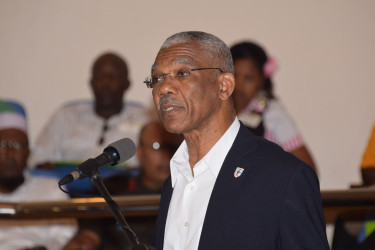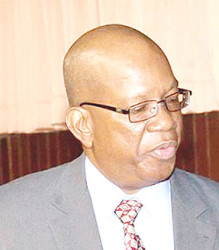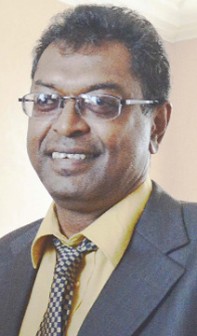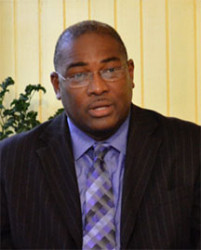Seven months after being elected to office, the APNU+AFC government has been able to fulfil and make progress on some of its pledges but it has also courted controversy on several issues and has been accused of being slow to take action.

Elected to office on the premise that “it is time” for change for the better, the APNU+AFC coalition unseated the PPP/C government after 23 years of power by promising accountable and transparent governance and committing to tackle poverty, crime, dictatorship, disunity, cronyism and corruption, among other ills.
The coalition listed 21 actions which it pledged to fulfil in its first 100 days in government but while the majority have been realised, some are still to be achieved.
One of its major promises, the establishment of the Public Pro-curement Commission, has not yet been done while a pledge to return a television station to Lindeners has also not been accomplished. Another pledge, a Code of Conduct for parliamentarians, ministers and others holding high positions, has been circulated but there is no word as yet on whether it has been made official.
Also unfulfilled is the pledge to liberalize the telecommunications and ICT sectors and the adoption of a long-term sustainable economic development plan to realize the vast potential of this country.
The coalition government’s promise to reduce the Berbice Bridge toll was only achieved on January 1st after the Berbice Bridge Company Inc (BBCI) held out on signing an agreement with government for a subsidy to cover losses from the toll reduction.
Salaries

Some of the other pledges in the 100-day plan are partially fulfilled. The government had promised “significant sa-lary increases” for government workers, including nurses; teachers in primary, secondary and tertiary education; security personnel; and civil servants on the traditional payroll. It had also said there would be a significant increase in old age pensions. Although salaries were increased in the government’s first national budget, these have largely been deemed not significant since they amounted to only a 5% raise. In the case of a pensioner in Georgetown, as a result of the withdrawing of subsidies for water and electricity, this would mean that the increase would amount to only $385 per month.

In light of this, the government faced considerable criticism in October after it was revealed that cabinet had raised salaries for ministers which range as high as 50% for those in cabinet. The increases, which were quietly gazetted without a public announcement, have been met with stiff opposition.
According to the order gazetted by Finance Minister Winston Jordan, cabinet ministers will now receive $10,439,124 annually, representing a 50% increase. Junior ministers will earn $8,346,492, which represents an over 16% increase from the annual salary of a cabinet minister under the former administration.
Prime Minister Moses Nagamootoo will now receive $20,580,000 annually, an over $2 million increase, taking his monthly salary to over $1.7 million. Vice-Presidents, other than the Prime Minister, are to be paid $11,135,064 per annum.
Critics have said that ministerial salaries should not be raised much beyond the increase which was paid out to public servants.
The government has been urged to reverse the decision and it has been pointed out that ministers enjoy a range of benefits, including a duty-free concession on a motor vehicle by virtue of being members of parliament; chauffeur-driven state vehicle(s); a housing allowance or the provision of free accommodation; free electricity, telephone

and internet services; a 24-hour guard service; a gardener/handyman; and maid services.
The government has not backed down and senior officials including Presi-dent David Granger have defended the salary hikes.
Heat
The government has also faced heat over several unfulfilled pledges in the Cummingsburg Accord which formalized APNU’s relationship with the AFC prior to the elections. Among these was that Nagamootoo would chair cabinet which has not happened, but both parties have downplayed the issue.
The David Granger administration did come in for high praise however for its handling of the border controversy with Ven-ezuela.
Tensions between Guyana and Venezuela flared up earlier this year after the latter issued a decree on May 26th seeking to annex a vast expanse of Guyana’s maritime territory and portions of the zones of other Caricom countries.
Guyana mounted an intense international campaign to rebuff Venezuela’s maritime declaration, as well as that country’s claim to five-eighths of this country’s territory, and to articulate the position that a juridical settlement was now necessary where the latter was concerned.
Under unrelenting criticism, Venezuela later retracted decree 1787 and issued another decree on July 6th removing all geographical coordinates which has not satisfied Guyana since it does not remove the ‘right’ of the neighbouring state to operate in our maritime space.
Guyana has written to the UN Secretary General Ban Ki-moon seeking a juridical settlement to the controversy.
The Secretary-General has since dispatched several missions to both Guyana and Venezuela to discuss the way forward.
Guyana has received support from several groupings including Caricom and the Commonwealth Heads of Government which issued a communique expressing full support for the UN Secretary General to choose the means of a settlement of Guyana’s border controversy with Venezuela.
The government was also praised for its handling of flooding in the middle of the year. Despite heavy rains which resulted in flooding, the waters drained off relatively quickly compared to previous times and generally, the government seemed more responsive to the concerns of citizens in this regard.
The administration has also been praised for the clean-up of Georgetown which, previously having first been labelled the garden city, was derided as the “garbage city” as it seemed to become more run-down and less clean with every passing year. The cleaning of the drains and canals also helped with alleviating flooding.
Fedders Lloyd
Later in the year, however, several decisions again courted controversy. The administration has been severely criticised for its award of the specialty hospital project to Fedders Lloyd without going to tender. Government officials have trotted out a variety of reasons for the selection of the company without a tender process. The Government of India had provided a US$18M line of credit for the project but after the first company Surendra Engineering was fired from the project, about US$13.6M remained.
Initially, the Ministry of Finance said that government had approached Fedders Lloyd “in the interest of time,” to undertake the completion of the project. Subsequently, the ministry said that Fedders Lloyd qualified to be selected by virtue of the firm having been one of the two bidders that were in contention for the original project under the former PPP/C government.
However, the evaluation report obtained by Stabroek News shows that company was disqualified from the process and
questions have been raised about why the ministry would mislead the public since the evaluation report would have been available to the APNU+AFC administration.
Subsequently, Minister of Public Security Khemraj Ramjattan who had represented the company said a provision in the contract for the specialty hospital allows for government to employ a third party to complete the project in the event of fraudulent practices by the original contractor, and it was under this clause that Fedders Lloyd was chosen to finish the project. Observers however note that such a contract cannot supersede the law.
Among the critics of the government for its handling of the project was former president of the Transparency Institute of Guyana Inc (TIGI) Calvin Bernard who had said the circumstances warranted retendering the project. Former Auditor General Anand Goolsarran had also said the MOU inked by government with Fedders Lloyd to complete the specialty hospital should be cancelled and the bidding process restarted.
However, TIGI has said that despite his denial, the MOU for Fedders Lloyd to continue work on the specialty hospital without the project going back to tender and outside of the Procurement Act, raises the question of whether Ramjattan’s influence was brought to bear in the decision to award the contract.
TIGI also criticised the government for its “cavalier” treatment of allegations against interim Guyana Power and Light (GPL) chief Colin Welch who has been allegedly implicated in irregularities involving the procurement of prepaid meters worth US$4M by GPL.
Complaints were made against Welch alleging that he was in communication with the bidder and supplier for the contract, Tesco PLC, a British firm and Shenzhen Clou Electronics Company Limited of China respectively, urging them to supply false information. However, the government has declined to send him on leave pending an investigation into the allegations against him.
Constitutional reform has been one of the major promises of the new government but it has been slow off the mark. In August, a steering committee was appointed to lay the groundwork for a new constitutional reform process. Attorney Nigel Hughes was named the convener of the committee, which also comprises attorneys Gino Persaud and Geeta Chandan-Edmond, Professor Harold Lutchman and constitution expert Haslyn Parris.
Attorney-General Basil Williams has said it would have four months to complete its work from September 1st. It barely met the deadline on December 31st. Its work would have entailed formulating proposals on the manner, nature and conduct of the constitutional reform process.
In terms of a political conciliation process, relations between APNU+AFC and the opposition PPP have been frosty despite Granger’s pledge to work towards national unity. “I extend the arm of friendship to former president Donald Ramotar… to join this movement of national unity,” he had said at his swearing-in. He had subsequently said that a formal request would be dispatched to the PPP to partner with the government for national unity. However, there has been little progress in this regard.
Further, in terms of actions against officials it had fingered as being corrupt, the government has been accused of being slow to act despite audits uncovering actions in contravention of laws.
The government has also been sluggish in trying to renew the forests partnership with Norway under which Oslo committed to providing up to US$250 million based on independent verifications of Guyana’s deforestation and forest degradation rates and progress on REDD+ enabling activities. The partnership ended last year and, according to statements from officials, talks are to continue this year.





